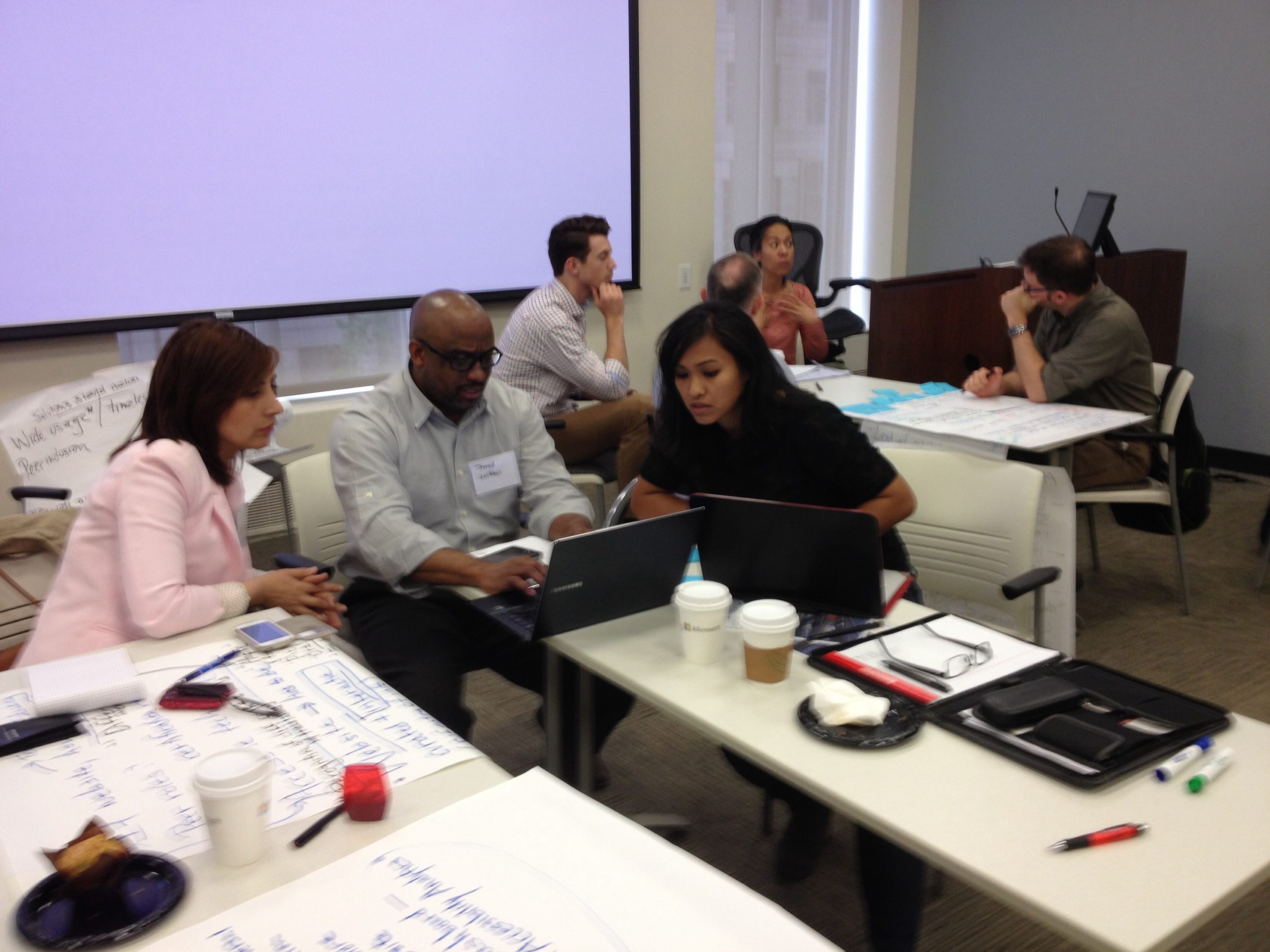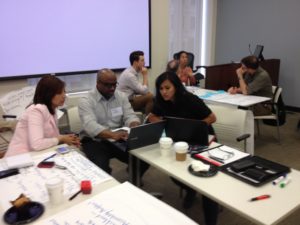This week I helped facilitate the work of a diverse group exploring what resources could be created for people with disabilities, whatever their disability might be and wherever they might reside. The group of ten very creative people had participants from four countries and a wide variety of professions, experiences and perspectives. We outlined an innovative and versatile resource app called “U Access” – your Global Concierge (unfortunately not yet an actual app, still just an idea) which would pull from existing data bases and information from users to provide answers in ‘real time’ and be available to a wide range of cell phone operating systems and other platforms. This is just a very simple outline of the idea; and while the idea was an exciting one, the goal of the workshop was also to explore the process we were engaged in together. Not quite an ‘open space’ (as we had a pre-existing goal to come up with some type of product or service) the process was still an open ended one that we needed to create together. Here are some of the things we learned:
- It’s a delicate dance between allowing enough time for brainstorming so as to not cut off creativity and ideas, but moving on when there appears to be more repetition than new ideas.
- We confirmed that diversity in a group leads to a wide range of creative ideas and approaches, as long as the environment allows the necessary give and take and ‘respectful’ and open-minded listening. Some Facilitation Resources
- One person’s definition of accessible or universal can be very different than another’s, reminding me again of the importance of teams defining together the key terms they will be working with – Words that Communicate
- Pathways can feel a little less clear in such a workshop than in a more ‘structured’ session with more of a framework and clear deliverables, such as developing an organizational strategic plan. The openness of the outcomes when designing can lead to a feeling of more ‘chaos’ during the session before pathways become clear.
- Some type of prototyping (whether it be physical or graphic such as with a story board) can help people to get a clearer vision of what is intended and whether they think the idea ‘will work’, although there is no way to know this for sure until it is tested in context.
- Although we did not get as far as feedback from users (that would then be integrated into the next iteration), we agreed that this is an important step and not as common in many processes as would be ideal. It takes time, resources and on-going commitment. FeedbackLabs.org is doing some very interesting work providing resources for this important part of the process.
All in all we agreed that although our initial expectations of our time together were varied, we all came away with a better sense of what can make such exploratory processes effective.

